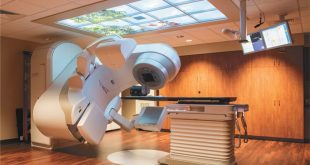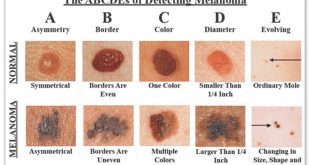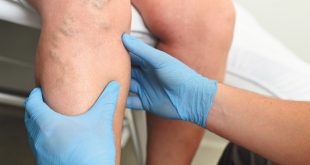 Americans love the 4th of July, a day when we all get together with family, friends and neighbors to delight in the color, dazzle and brilliance of fireworks. However, it should be no surprise that consumer fireworks, the kind obtained for home use, can cause serious injuries, even fatalities. According to research by the U.S. Consumer Product Safety Commission, 2020 saw more than 15,000 people end up in emergency rooms due to fireworks-related injuries. This is more than double the number treated a decade earlier, suggesting that consumer fireworks are being underestimated and mishandled now more than ever. As incendiary devices, all fireworks have the potential to be dangerous – but it may be surprising that good ol’ mainstays, firecrackers and sparklers, are at the top of the list.
Americans love the 4th of July, a day when we all get together with family, friends and neighbors to delight in the color, dazzle and brilliance of fireworks. However, it should be no surprise that consumer fireworks, the kind obtained for home use, can cause serious injuries, even fatalities. According to research by the U.S. Consumer Product Safety Commission, 2020 saw more than 15,000 people end up in emergency rooms due to fireworks-related injuries. This is more than double the number treated a decade earlier, suggesting that consumer fireworks are being underestimated and mishandled now more than ever. As incendiary devices, all fireworks have the potential to be dangerous – but it may be surprising that good ol’ mainstays, firecrackers and sparklers, are at the top of the list.
And the Rocket’s Red Glare
With Independence Day fast approaching, the American Academy of Ophthalmology wants to remind everyone that the most common fireworks-related injuries include those to the eyes. Ocular injuries can range from temporary to serious – about one third of cases involve permanent vision loss, even total blindness. Common eye injuries include thermal and chemical burns, corneal abrasions and lacerations, ruptured eyeballs, and retinal detachment. 50-65% of people who end up in ERs aren’t even involved in lighting or handling fireworks themselves, but merely sitting on the sidelines enjoying the show. Therefore, firework safety impacts everyone. Be sure to take measures to protect yourself as well as your loved ones, especially children.
Enjoying Fireworks Safely
Professionally-run public fireworks events are not only the most dazzling and impressive, they’re also the safest. However, if you elect to set off your own fireworks display, make sure to follow these helpful guidelines:
• Keep your distance. For ground-based fireworks, keep a distance of at least 35 feet. For aerial fireworks, move back 150 feet or more. If you’re the one lighting the firework, light only one at a time to give yourself time to put quick and adequate distance between yourself and the device.
• Protect children from firework hazards. Young children are naturally attracted to fireworks but likely don’t understand the dangers, and should not be permitted to light or handle them. Even benign-seeming sparklers can cause serious injury; in fact, sparklers account for more than half of the injuries to children under age 5. In one recent case, a 4-year-old died from a sparkler-related injury. Older children responsible enough to light fireworks should do so under adult supervision. Don’t allow kids of any age to jump over or run through fireworks.
• Be mindful of surroundings. Don’t light fireworks near anything flammable, including homes, dried brush, leaves, grass, etc. Strong winds can blow a firework over and launch it toward people or force sparks into flammable areas and ignite a fire, so, if it’s windy outside, it might be wise to postpone your celebration.
• Keep a bucket nearby. A bucket full of water is a great thing to have on hand for embers, flames and fireworks that fail to ignite. If you have a fire extinguisher, keep it on hand.
• Flood the duds. If a firework fails, don’t try to relight it. Let is sit away from you and others for 5-10 minutes, then submerge it in your bucket of water to ensure it is disarmed so it can be safely thrown away.
• Don’t use illegal or homemade fireworks. Certain fireworks pose undue hazards, are crafted without oversight or safety guidelines, or leave certain ecosystems vulnerable to their effects. Never place fireworks in a container, especially one that is made of metal or glass, which can become dangerous shrapnel once a firework goes off.
• Protect your peepers. It is smart to use protective eyewear like safety glasses or goggles while handling, lighting or viewing fireworks. Whatever awkwardness you might feel at first will pass – and will help keep you out of the ER.
• Act quickly. Should your eye(s) become injured by heat, chemicals, objects or blunt force trauma, immediately head to the nearest emergency room or call 911. Don’t touch, rub, rinse or apply pressure to your eyes. Despite a natural instinct to remove objects that may have entered the eye, leave that to a medical professional to prevent further damage.
The Board-certified doctors and vision care experts of Lake Eye (a US Eye Company) want you to enjoy a wonderful and safe July 4th celebration, now and through the years to come. For everything you need, from vision exams, leading-edge lenses and name-brand designer eyewear, to eye health maintenance and monitoring, to the most advanced technologies for cataracts, glaucoma, dry eye and more, Lake Eye has been the region’s trusted eyecare leader for more than 40 years. We are your one-stop destination of a lifetime of clear, healthy vision.
Lake Eye
352-775-1533 • LakeEye.com
 Central Florida Health and Wellness Magazine Health and Wellness Articles of the Villages
Central Florida Health and Wellness Magazine Health and Wellness Articles of the Villages



